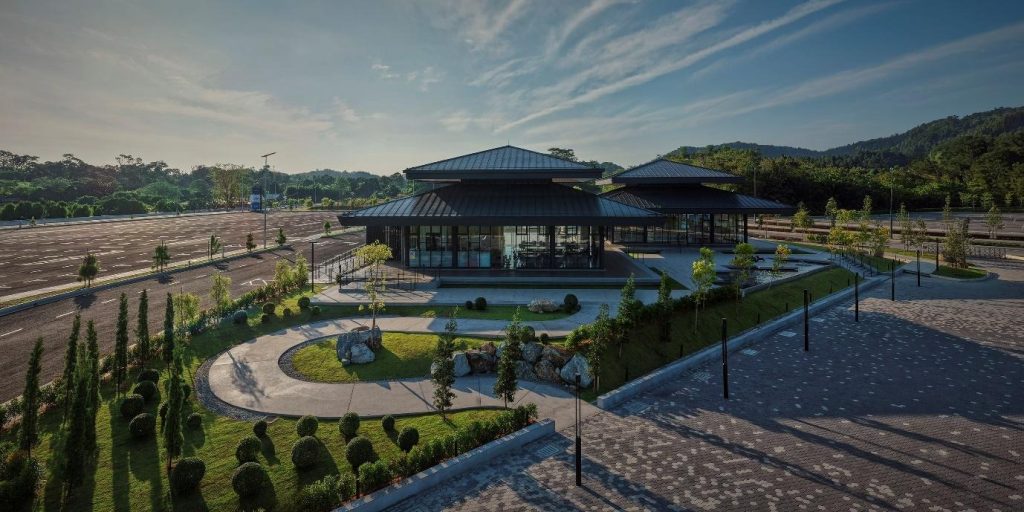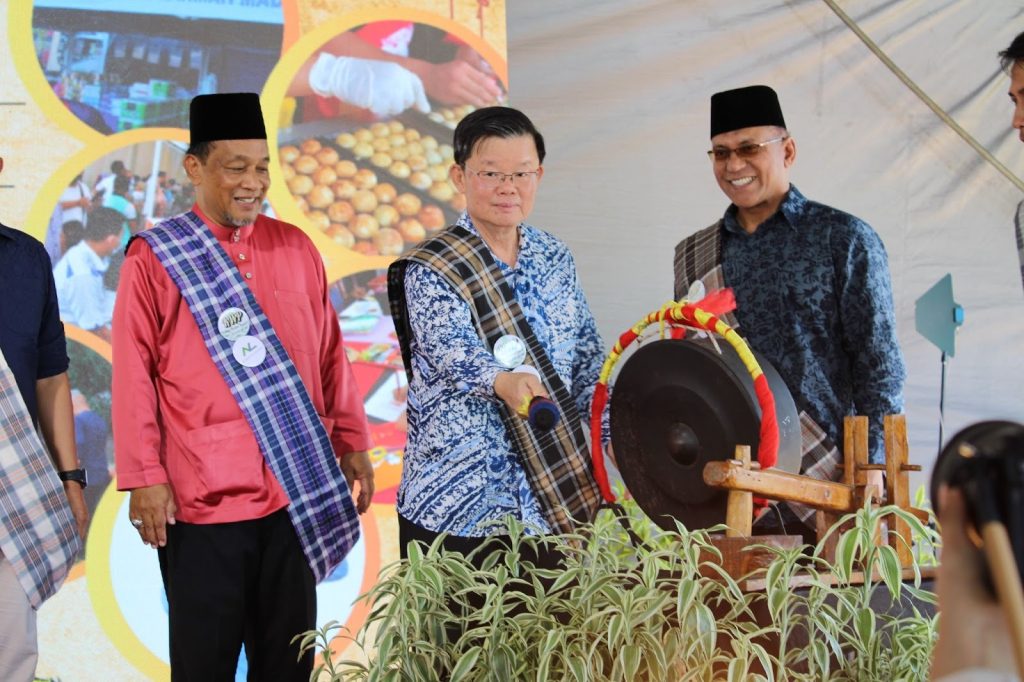
By Joseph Wong
In Malaysia, real estate holds a dual identity. It is simultaneously the most significant wealth-building tool for families and, paradoxically, the most challenging asset to access when they need it most. Without meticulous estate planning, what is meant to be a legacy often becomes a liability, leaving surviving family members financially exposed and caught in prolonged legal battles. With over RM90bil in inheritance assets frozen or unclaimed in Malaysia as of September 2025, is the nation finally ready to rethink how families protect their legacies?
This critical issue is at the heart of the digital transformation sweeping through the inheritance landscape. Digital estate planning platform Sampul.co co-founder and chief executive officer Arham Merican shone light on the painful realities of conventional probate and how technological innovation, coupled with legal compliance, is finally providing clarity and stability for Malaysian households.
A deeply entrenched but dangerous myth in Malaysian society is the belief that when a property owner passes away, the asset automatically transfers to the surviving spouse or immediate family. In reality, when someone passes away, their property does not automatically go to the surviving spouse.
Under both Malaysian civil law and Shariah law, the property is considered part of the deceased’s estate and must first be distributed among all legal heirs. This distribution follows either the Probate and Administration Act 1959 for non-Muslim estates or Faraid principles for Muslim estates. This legal requirement means that the moment of death triggers the asset freeze.
During this freezing period, the property cannot be sold, refinanced or transferred. Yet, the financial obligations tied to it such as monthly mortgage installments, annual quit rent, local authority assessments and maintenance fees continue to accumulate.
“Real estate is usually the most valuable asset in a Malaysian household, yet without proper estate planning, it’s also the most difficult to access after death,” Arham explained. “Families often find themselves forced to maintain the home out of pocket while locked out of the asset’s value, creating unnecessary financial strain that can last for years.” The lack of immediate access to the asset combined with mounting debt is the core of the financial vulnerability facing these families.
The maze of conventional probate and delays
The process of officially gaining control over a deceased person’s assets, known as probate, is notoriously complex and time-consuming in Malaysia. This complexity arises because multiple government and financial agencies are involved, from the High Court (for a Grant of Probate or Letter of Administration) to Amanah Raya Bhd and the relevant Land Office.
Arham highlighted the common obstacles that lead to substantial delays: “The conventional probate process can be long and complicated because multiple agencies are involved and each requires different documentation from property title verifications to debt clearances.”
Many families are unaware of how extensive these bureaucratic steps can be. Common delays include:
- Incomplete documentation: Missing original property titles, identification documents of the deceased or heirs or incomplete bank statements.
- Uncertainty over heirs: Disputes or lack of clear documentation regarding the rightful beneficiaries, necessitating costly and time-consuming court declarations.
- Ambiguous wills: Cases where a property was recently acquired but not updated in the deceased’s will, causing it to fall under default inheritance laws (the residuary estate) rather than the intended wishes.
For estates considered straightforward, real estate assets typically remain frozen for six to twelve months. However, in more complex scenarios involving multiple properties, significant debts or legal contests, this can easily stretch beyond two years. Crucially, financial institutions will have already frozen the deceased’s bank accounts, removing any immediate source of liquidity needed to manage the estate’s ongoing costs.
The threat of multi-heir disputes
Beyond procedural delays, family disagreements represent one of the biggest causes of real estate assets remaining frozen indefinitely. When a property is inherited by several individuals as tenants-in-common, a legal deadlock can ensue.
“If there are multiple inheritors, any decision to sell, refinance or transfer ownership requires unanimous consent from all of them,” Arham explained. “If even one heir disagrees—whether due to emotional attachment, a wish to hold out for a higher price or pure spite—the property can remain in legal limbo for years.”
This gridlock traps the property’s value, forcing the family to continue paying all associated fees while being denied the ability to liquidate or manage the asset.
By establishing clear terms of transfer ahead of time through a regulated trustee such as Rakyat Trustee Bhd, the property can be managed responsibly and according to the owner’s wishes, effectively bypassing future family disagreements and procedural deadlocks. This forward planning is crucial for protecting the asset from internal conflict.
Digital transformation
Digital estate planning is transforming how Malaysians secure their inheritance, especially for high-value assets like real estate. However, Arham stresses the need for asset owners to keep their plans current. If a property was recently acquired but not yet included in the will, it falls under the residuary estate. “To prevent this, Sampul.co allows users to update their estate plans digitally whenever they acquire new assets. This ensures that every property is immediately reflected and properly assigned to the right beneficiaries,” he said, pointing out the advantage of digitalisation.
For Muslim families, estate planning extends beyond financial management; it is a matter of fulfilling religious responsibility. Shariah-compliant planning ensures that property and wealth distribution align with core Islamic principles (Faraid, Hibah and Wasiat) which is vital for preserving family harmony and adhering to faith-based integrity.
This compliance is particularly valuable for groups like Hajj pilgrims, who gain peace of mind knowing their families have immediate financial access during their pilgrimage. Furthermore, Shariah-compliant structures are increasingly used by professionals to create philanthropic legacies such as Wakaf and Sadaqah Jariyah, said Arham. Sampul.co’s adherence, backed by partnerships with Rakyat Trustee Bhd and Halogen Capital, ensures that modern convenience meets full faith-based integrity.
Real estate today is far more than just bricks and mortar. Arham emphasised that many Malaysians now own property-linked investments, such as Real Estate Investment Trusts (REITs), commercial ventures or joint development shares.
“These assets are just as prone to being frozen if they’re not properly documented,” he cautions. Sampul.co ensures that users can consolidate both physical property and investment-linked assets into a single, transparent estate plan. This streamlines the process for beneficiaries to track, verify and claim all property-related assets, maintaining continuity and protecting the family’s overall real estate portfolio.
“Estate planning touches multiple disciplines: law, finance and personal legacy,” said Arham. “Collaboration ensures that families receive complete, compliant and compassionate support. This not only helps families manage the practical and emotional aspects of property inheritance with greater confidence but also supports national financial literacy initiatives, helping more Malaysians understand why estate planning must start early.”
The digital evolution, spearheaded by platforms like Sampul.co, is moving Malaysian estate planning out of the era of paper delays and family conflict and into a future defined by clarity, compliance and confidence.
This article was first published in StarBiz7.
Stay ahead of the crowd and enjoy fresh insights on real estate, property development and lifestyle trends when you subscribe to our newsletter and follow us on social media.










































